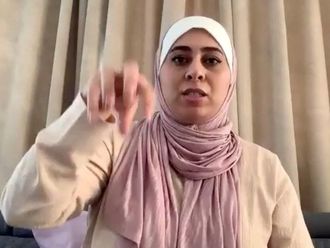Baghdad: Iran has played a vital role in the agreement between the two Iraqi Shiite leaders Abdul Aziz Al Hakim and Muqtada Al Sadr to avoid an "open war" among the Iraqi shiites, Iraqi politicians and analysts said.
The two leaders have vowed peace amid escalation of armed clashes and assassinations between the Islamic Supreme Council, led by Al Hakim and Al Sadr's Mahdi Army in Shiite southern provinces in Iraq.
Bloody violence
"I believe that Iran played an important role in urging Al Hakim and Al Sadr to sign a peace agreement, which was signed on Friday and was announced on Saturday, especially when the bloody violence in Karbala in August showed the amount of hostility between the Mahdi army and Al Hakim's armed wing," Abbas Al Asadi, a political researcher in Najaf, told Gulf News.
"Information indicates a confidential investigation warned of open and violent war between the two sides if they did not end this hostility as soon as possible," he added.
Although the statement released by Al Hakim's office did not mentioned the exact date or location of the agreement with Al Sadr, sources in the Shiite coalition suggested the agreement had been signed in Iran where Al Hakim is undergoing treatment for cancer.
Jaafar Al Shaibani, an activist in Shiite Hawza studies, told Gulf News: "The peace agreement between Al Sadr and Al Hakim was dictated by challenges and risk of a civil war outbreak between Shiites."
However, he added the agreement should not be seen as "a magic wand" to solve all problems and stop assassinations.
The Hakim-Al Sadr peace agreement concludes three main items: strengthening relationships between the two parties, unifying and coordinating their cultural messages and media releases statements and forming a joint committee to resolve disputes.
Border crossing points reopened
Iran yesterday re-opened five border crossing points with northern Iraq, closed last month by Tehran to protest the US detention of an Iranian official as the US steps up allegations that Iranians are fuelling the violence in Iraq.
The border points were re-opened after a Kurdish delegation travelled to Iran to say the region should not be punished for something the US did. Iraqi and Iranian authorities have claimed the detained Iranian was in Iraq on official business and demanded his release.
- AP












